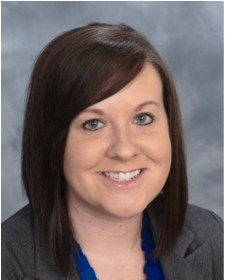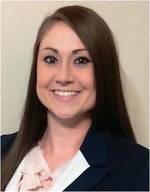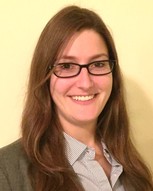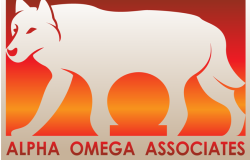 What are the primary skill sets you bring as a consultant? Although my training is that of an applied researcher, I also occupy a space that is likely more in line with a modern notion of data science than that of traditional research. This has given me an incredibly broad exposure to different statistical methods and different ways to answer questions. I do not come at issues like a “consultant,” a “Psychologist,” or a “researcher,” but purely as a scientist. All of my work is reproducible (i.e., everything is documented and nothing happens “on the fly,” so there is never a question about what was done). Data collection is also one of my specialties – from paper to web to mobile and all points in-between, I can get the data that an organization needs so that we can answer the important questions. What’s your favorite part about being a consultant? The best part of being a consultant is getting to work on different projects. Every client/project has unique needs and it is my responsibility to merge my knowledge with those needs, while picking up some domain specific knowledge on the way. What do you see as the number one reason an organization should consider an external consultant? Skills. Many organizations, especially smaller ones, do not have the necessary personnel to adequately engage in research – a free account for a web-based survey program does not mean that a person knows how “to survey,” let alone do research. What do you see as the single largest difficulty organizations face? Internal myopia. Decision-makers developer hyper-focus and lose the ability to see (and consider) viable alternatives. This also drives them hastily implement a solution, without really knowing where the kinks lay. What fictional organization would you most want to consult for? There are so many good ones, but I would probably pick Jefferson Cleaners; the dry-cleaning industry is long overdue for some good organizational research. Omni Consumer Products would probably be a very close second and maybe more in-line with my skills. If you were a consulting superhero, what would your power be and how would you use it? This is a tough question, because the modern toolkit gives us so much power already. If I had to pick one, though, I suppose my power would be uncanny efficiency – every line of code would be perfect, the first model would always be the best, every row of data would be perfectly clean and complete, and every answer would be perfectly clear. What do you do outside of work? I spend time with my family, engage in all sorts of odd projects and hobbies, and learn new things. After everyone else is in bed, I find myself working on something to throw up to my GitHub page – https://github.com/saberry -- or engaging in any matter of statistical computing shenanigans.
0 Comments
 What are the primary skill sets you bring as a consultant? I have advanced graduate training in program evaluation, research & statistical analysis, and survey methodology. Being immersed in various industries (e.g., healthcare, retail, technology, aerospace) the primary skill sets that I bring from all of those experiences as a consultant include project management, survey design, training/development, and presentation when it comes to delivering information, results or solutions to clients. What’s your favorite part about being a consultant? My favorite part about being a consultant is getting to work with a lot of different companies or clients on what can sometimes be really tough situations. It is not easy work, but it can be really rewarding in the end when you've been able to deliver information and solutions to your client that are meaningful, useful and drive positive organizational change. What do you see as the number one reason an organization should consider an external consultant? I think that the number one reason an organization should consider bringing in an external consultant is because that person brings with them a specialized skill set and the ability to bring new and innovative ideas or perspectives based on what they've seen work (or not) before. What do you see as the single largest difficulty organizations face? I think the single largest difficulty that organizations face is information overload. Learning how to make sense of the information coming at them and how to use it all to make strategic, impactful business decisions is the ultimate challenge. What fictional organization would you most want to consult for? Pied Piper, a software start-up and data management company from the HBO show Silicon Valley. While their savvy programming skills allow them to excel in revolutionizing the way computer data is transferred and stored, they usually need quite a bit of help running the business-side of things. If you were a consulting superhero, what would your power be and how would you use it? If I were a consulting superhero, I would want to have the superhero power of telepathy. Through telepathic communication and perception, I would be able to communicate with and know what my client(s) were thinking. This in turn would allow me to speed up the time it takes to make decisions along the way and meet client expectations more accurately. What do you do outside of work? Outside of work, I enjoy hiking, yoga, knitting, sipping on craft beer or wine from local wineries, and spending time with my dog Harley.  What are the primary skill sets you bring as a consultant? Non-Charter School related- I bring in a unique clinical skill set. I have had the opportunity to work with various individuals including children, teenagers, and adults. All of the individuals that I have had the opportunity to work with vary in demographics, skills sets, and socio-economic status. I have worked for small non-profit organizations, large organizations, and even Fortune 500 companies. With these experiences, I bring a unique ability and desire to work with individuals from all different populations. Charter school specific- My mother has been a teacher for 10 years, primarily for charter and low-income schools. I have had the opportunity to spend time in her classroom and work directly with her students. Being the daughter of a teacher, I also have familiarity with the mandates set for school districts, as well the difficulty for schools’ reputations to not be based solely on state test scores. Spending time in her classroom and learning more about her role has given me a great amount of insight into the educational system, and I have the utmost respect for our educators. What’s your favorite part about being a consultant? I love that no two clients’ needs are the same, thus no two projects are the same. I enjoy learning about my clients and providing them with a solution that best meets their individual needs. It is such a great experience to speak with a client and support them until all of their needs have been met. What do you see as the number one reason an organization should consider an external consultant? I think the clients are the experts of their situation, but we are able to provide an outside, unbiased point of view. I think it is awesome to provide clients with an objective view that can help them think outside of the box to best solve their problems. AOA provides a great deal of expertise in our field, and when matched with our clients’ expertise, it is a great situation! What do you see as the single largest difficulty organizations face? I think recruiting and retaining talented employees can be difficult. There are so many organizations that an employee can work for, so ensuring that they are meeting their employees needs while still maintaining productivity is incredibly important, but difficult for some organizations. What fictional organization would you most want to consult for? From the episodes I have seen from “The Office,” I definitely think they could use some help from AOA. What do you do outside of work? I love spending time with my ornery but cute dogs. I also love to read both fiction and non-fiction books. I love to read fiction books to relax and “escape to another world.” I also love non-fiction books because I love to continue my learning. Time with my friends, partner, and family are also incredibly well-spent!  What are the primary skill sets you bring as a consultant? I am proactive in understanding the needs of clients when we start working together. It is important to understand their background, culture, and expectations before work begins. I come to the table with many potential solutions to a problem and work through the pro and cons of various approaches to the work. In each project I work on, I strive to understand the root causes and challenges that will drive us to a solution to the client’s need. What’s your favorite part about being a consultant? Watching research transform into positive change. I am motivated by helping others come to the solutions they need to implement based on applied research. What do you see as the number one reason an organization should consider an external consultant? External consultants are skilled at immersing themselves in organizations to enable advising on opportunities that had not been recognized internally. By building close relationships with stakeholders, consultants have the ability to be an objective advisor. What do you see as the single largest difficulty organizations face? Organizations are under immense pressure to compete with others in their industry while also keeping up with changing needs of their “customers” or people they serve. What fictional organization would you most want to consult for? Grey Sloan Memorial Hospital aka. Seattle Grace. If you were a consulting superhero, what would your power be and how would you use it? That would be nice! My power would be to guide stakeholders through the actions they need to take based on insights derived from research. The path to success would be clear and clients would feel that they shared in my superpowers, too. What do you do outside of work? I spend time with my family, do yoga, try new restaurants, and travel to new places.  This is the first in a series of spotlights on our consultants in a Q&A format to help you get to know our consultants! What are the primary skill sets you bring as a consultant? I have received advanced graduate training in personnel selection, motivation and leadership, research and statistical analysis, employee training and development, organizational development, and work attitudes. I have experience consulting in the areas of management consulting and organizational development, in which I utilized my training to conduct organizational analyses and training needs assessments, along with developing and validating assessments. What’s your favorite part about being a consultant? My favorite part about being a consultant is being able to provide clients with quality solutions that will help their organizations thrive. I chose to become an organizational consultant so that I could apply psychological principles to the workplace and drive organizational effectiveness. What do you see as the number one reason an organization should consider an external consultant? I feel that the number one reason an organization should consider an external consultant is that external consultants provide organizations with a fresh perspective and objective recommendations. What do you see as the single largest difficulty organizations face? I feel that retaining key personnel and ensuring that there is buy in from employees in regards to the overarching organizational goals and culture is such an important piece that organizations should focus on, but that it can also be one of the largest challenges that organizations face. What fictional organization would you most want to consult for? Palmer Technologies because Ray Palmer, the CEO, is a man that believes in always doing the right thing. As a consultant, I feel that it is important to understand the values and ethics of the organizations that you work for, so as to ensure a match between their values and yours. If you were a consulting superhero, what would your power be and how would you use it? Enhanced awareness (detail intuition) so that I could go into any organization and automatically understand all aspects of the organization on day one. What do you do outside of work? Outside of work I am generally doing yoga or reading a good book. Thanks, Janna! Read more about Janna, and our other awesome consultants, here. Stressed now that the year is heating up (while still be cold)? You are not alone.
Take 5 minutes and try these techniques to improve the next hour: Close your eyes, breathe in deeply, and imagine your entire torso filling up with air. Go ahead, try it. Repeat 3x. Stretch with your arms in three directions – overhead (stretch!), behind (stretch!), and in front (stretch!). If you are seated, take a 2 minute walk – around your floor, your office, your home, your classroom – wherever you might find yourself! While you are walking, think of something you want to tackle in the next half-hour, and when you return, you will likely feel more motivated to tackle it – without feeling so much of the stress! There are two main categories used to identify employee (specifically managerial) stress, which are challenge-related and hindrance-related.
Challenge-related refers to time pressures from work, general job overload, or high levels of responsibility. Hindrance-related refers to challenges or constraints that get in the way of work, such as red tape/bureaucracy and politics. Both categories of stress can create lower job satisfaction and engagement, and can spur employees to start searching for a new job or disengage from their current role. There are a number of strategies that employers can enact to combat these types of stressors so as to retain valuable employees and managers. We have a system in place to work through these challenges and hindrances so you can gain peak performance from your most valued resources. Contact us today for more information on how we can help, and prepare to say good-bye to the stressors of yesterday! Have you been on the lookout for a coach, or a coaching team, for executives in your organization? It's a difficult research project to find the coach(es) that will be the best fit for your needs. We encourage you to check out this professional resource on how to select the best coach - and you feel if we might be a good fit, encourage you to inquire!
Why focus on leadership development? An employee may receive a promotion due to excellent performance, but that does not necessarily mean that they have the required skills to lead a team of employees. It simply means that they have the required skills to perform their job to an exceptional degree. Stepping into a leadership role involves more than job-related skill; it is vital that leaders possess the ability to be able to motivate, inspire, engage, delegate, reward, problem solve, handle conflict, and so much more.
Why is this relevant to your organization? When the leadership in an organization is ineffective or destructive, it can lead to counterproductive work behaviors, turnover, lowered job satisfaction, and even aggression in the workplace (Einarsen, Aasland, & Skogstad, 2007). The leadership development that Alpha Omega Associates provides can help eliminate any destructive or unsuccessful leadership behaviors, along with delivering many added benefits to your organization as a whole. Whether you are looking to increase leader knowledge, ability, or strategic vision, utilizing an effective leadership development program will provide your current or future leaders with the tools that they need to:
Fortunately, the impact of leadership development does not stop there. As leadership development positively affects the factors stated above, it will also inevitably increase:
By involving Alpha Omega Associates in your organization to design and implement a leadership development program to fit the needs of your organization, you are not only investing in your current and future leaders, but in the success of all of your employees and the successful future of your organization as a whole. Contact us today! Are you tired of your current performance evaluation system, but aren’t sure what to do about it? Alpha Omega Associates has just what you need to finally give those dreadful evaluations the boot!
It’s that time of the year again…the annual performance appraisal. Suddenly employees seem more anxious and tense, and managers are dreading “the talk” with their employees about their performance. Many organizations use the traditional method of evaluating employee performance in which a supervisor rates their subordinate on a number of competencies or skills. Yet, research indicates a high level of dissatisfaction with these methods, with one study finding that 61% of employees stating that their supervisor lacks the ability to properly assess their subordinates (Kinicki & Fugage, 2012). The fact that so many organizations are using this method of appraising their employees, regardless of the high levels of dissatisfaction, is disheartening; however, 360 degree feedback provides a more advanced and accurate measure of the employee’s true performance. 360 degree feedback gathers information from multiple sources (supervisors, peers, subordinates, and self-ratings) with less error to capture a more comprehensive view of the employee’s true performance. That’s where 360 degree feedback and Alpha Omega Associates comes in. Not only can we construct a tool that is superior to the unsatisfactory traditional performance evaluation methods, we are here to help you use that information to improve performance and productivity. The information we gather is less biased and captures a more accurate picture of the employee’s true performance, because it provides insight from multiple viewpoints including supervisor, self, peers, and subordinates (Cascio & Aguinis, 2011). Once we gather that information, we will conduct a comprehensive analysis of the feedback, identify areas for improvement, and provide training and coaching to develop your employees into exceptional performers. We’re ready to provide you with all of the tools and expertise to help your business excel! Contact us today. |
Best practices blog
Stay tuned to this page to read about best practices and other opinions/insights we give to hot topics! Archives
August 2016
Categories |

 RSS Feed
RSS Feed
